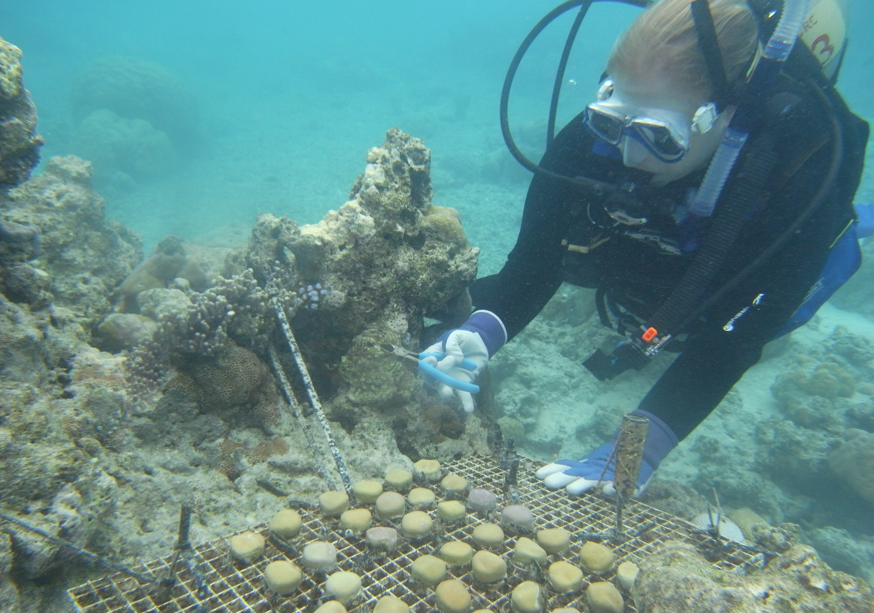PICRC researchers Lukes Isechal and Victor Nestor are excited to be involved with this highly technical experiment. Ocean acidification is a known result of the global use of fossil fuels, such as coal, oil, and natural gas. These fossil fuels release carbon dioxide (CO2) into the air, which, after a time, settles into the world’s oceans. More CO2 in the water raises water acidity, and this can damage coral reefs and marine ecosystems.
In order to set up the experiment, Hannah came to Palau last November through mid-December. She and Victor took coral core samples from Nikko Bay and Uchelbeluu reef. These samples were stored on specimen trays in the ocean for several months and Victor monitored the specimens’ health. This week, Hannah, Victor, and Daniel retrieved the coral samples, and they inserted each sample into its own container. The containers are filled with water of varying acidity, and the researchers should be able to clearly see how rising carbon dioxide levels will affect reefs.
PICRC, as part of its ongoing commitment to encourage locally relevant and globally significant research, often collaborates with visiting researchers from all over the world. CEO, Dr. Yimnang Golbuu, explains that “this collaborative research is an excellent opportunity for PICRC, because it provides our researchers the opportunity to work with the top researchers in the world working on ocean acidification, and it helps Palau and world understand ocean acidification and the factors that make corals able to grow in areas with higher acidity.” The knowledge gained from this work is important locally, because it will help inform Protected Area Network (PAN) design, and globally, because it will shed light on how corals around the world might survive the predicted increase in ocean acidity due to climate change. For experiment updates and images, please visit the Palau International Coral Reef Center (PICRC) Facebook page.


